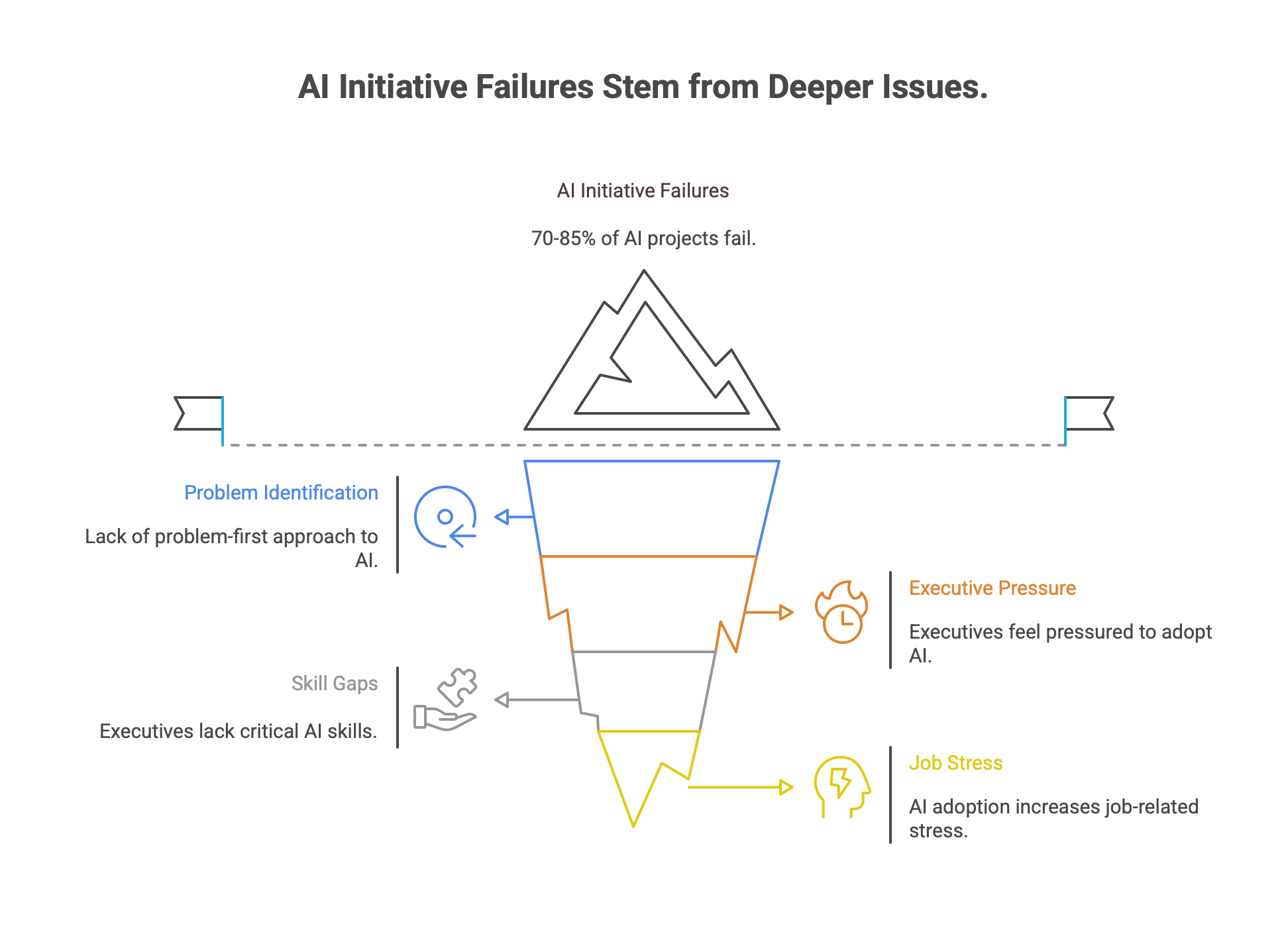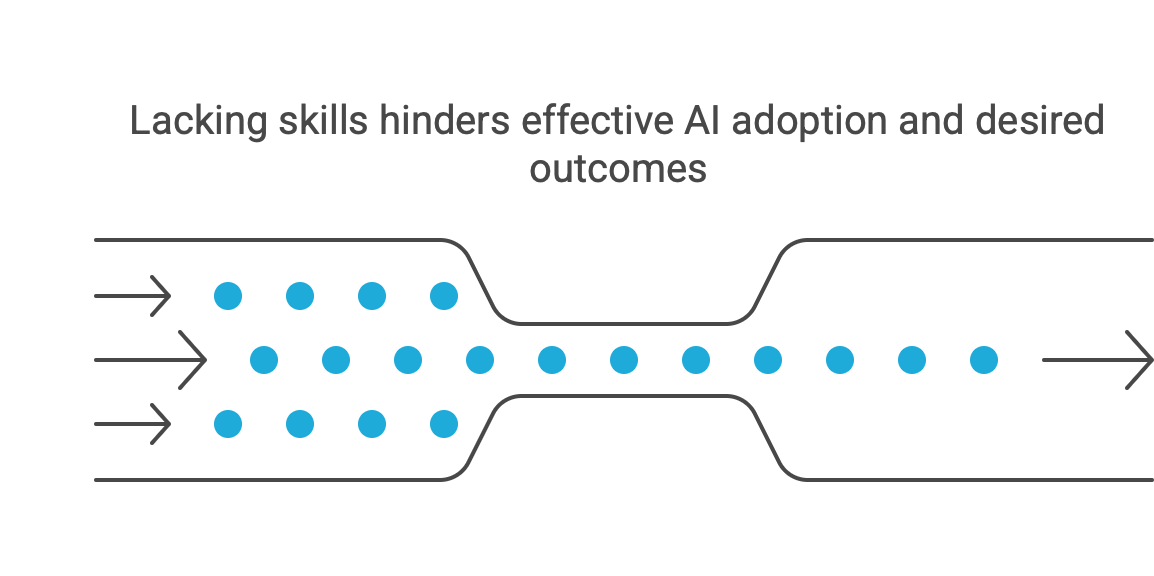Why AI Success Stories Make Everyone Feel Stupid

I scroll through LinkedIn and see another founder who automated their entire marketing stack in 10 minutes. Built a customer service bot over lunch. Grew revenue 300% with one AI tool.
Then I sit down to implement something similar and can't even get ChatGPT to understand my context properly.
Even as someone considered an AI expert, I watch these tutorials thinking "oh my gosh, this is so much." I'm trying to import one thing to another, trying to get a simple app design to look right, and I personally feel kind of dumb.
Here's what those success stories don't tell you: 70-85% of AI initiatives fail to meet their expected outcomes. The gap between the polished story and your messy reality isn't your fault.

The Backwards Thinking Trap
Most people approach AI wrong. They ask "what can AI do for me?" instead of identifying problems first.
It's like asking "how can I use the internet?" instead of recognizing you need marketing, then discovering SEO, ads, and social media as tools within that ecosystem.
I've seen founders build elaborate agent workflows for one-off tasks that would have taken 20 minutes to do manually. The FOMO drives them to force AI into places where it creates more complexity, not less.
This backwards approach has an emotional cost. When you're trying to hammer AI into every problem, you end up over-engineering solutions and feeling frustrated when simple tasks become complicated.
The Gold Rush Mentality
AI feels like a gold rush where your train came one week late.
Every day there's a new tool. GPT-4 gets dethroned by Claude. Claude gets dethroned by something else. Founders jump from shiny object to shiny object because everything's positioned as the next breakthrough.
Meanwhile, 64% of executives feel urgent pressure to adopt AI, but over half admit they lack the critical skills to do it effectively.
I've consulted with companies where management tells employees to "be the lighthouse for AI" in their organization. These people are watching Copilot tutorials, trying to figure out what's even possible, while feeling the weight of being the example for everyone else.
The Real Cost Nobody Talks About
AI competency is a muscle you need to train. It's like learning to think in a completely different way, similar to how we had to rewire our brains when email and text messaging emerged.
But we position AI as almost free. Not in computational costs, but in time and mental energy. The assumption is that people already have this embedded knowledge and just need to implement it.

Most people don't even know how to use Zapier, and now they're trying to build agents. The interfaces try to make it easy, but if you've never done anything like this before, it's overwhelming.
Research shows that AI adoption increases job stress, but self-efficacy in learning moderates this relationship. People with higher confidence in their ability to learn AI experience less stress from the process.
The Human Solution
The real solution isn't technical. It's being more honest about the process, not just the results.
You're already an innovator and expert in your space. It's normal to not understand everything about everything. It's normal to feel behind when you're scrolling through success stories that make AI seem instantly accessible.
Instead of chasing every AI opportunity, focus on your highest ROI problems first. Then look for methods to solve them. Some might involve AI. Many won't.
The most successful AI implementations I've seen prioritize the human element. They give people time to learn, expect a learning curve, and don't position AI as an instant solution.
Your train isn't late. You're just being more thoughtful about which station you actually need to reach.




